#harriett beecher stowe
Explore tagged Tumblr posts
Text

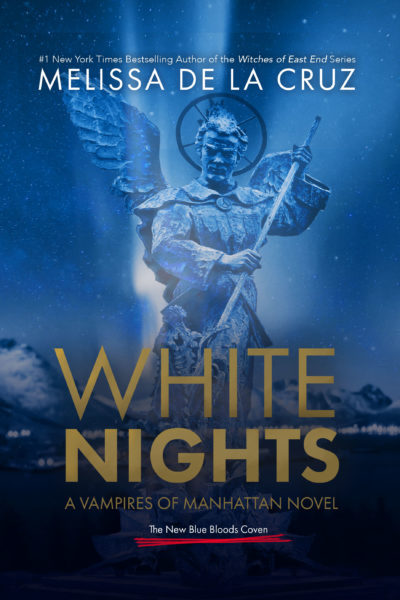
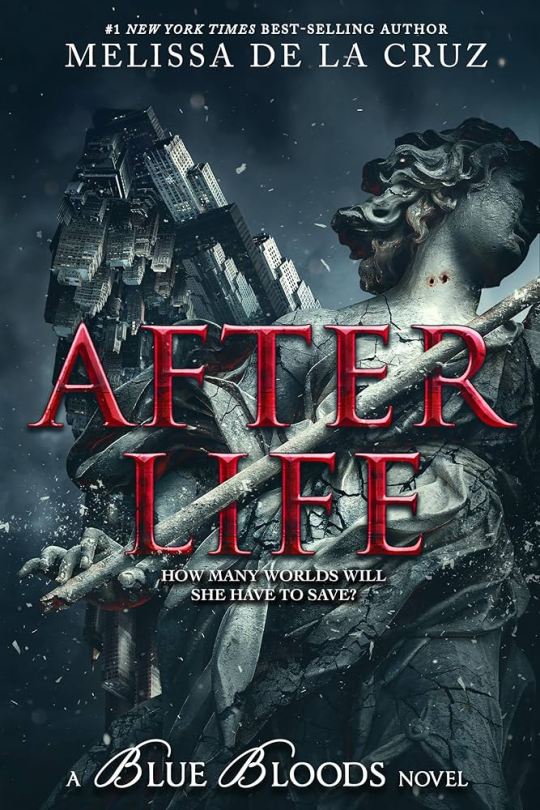
Antike (ca. 2000 vChr. bis ca. 500 nChr.)
Gilgamesch-Epos
Homer: Ilias, Odyssee
Äsop: Fabelsammlung
Caesar, Gaius Iulius: Der gallische Krieg
Vergil: Aeneis
Ovid: Metamorphosen
Tacitus, Publius Cornelius: Germania
Augustinus, Aurelius: Bekenntnisse
Herodot: Historien
Mittelalter (500-1500)
Beowulf
Murasaki Shikibu: Die Geschichte vom Prinzen Genji
1001 Nacht
Nibelungenlied
Gottfried von Straßburg: Tristan
Wolfram von Eschenbach: Parzival
Chaucer, Geoffrey: Die Canterbury-Erzählungen
Renaissance (1500-1600) und
Barock (1600-1720)
Boccaccio, Giovanni: Das Dekameron
Brant, Sebastian: Das Narrenschiff
Machiavelli, Niccolö: Der Fürst
More, Thomas: Utopia
Rabelais, Franois: Gargantua und Pantagruel
Cervantes Saavedra, Miguel de: Don Quijote
Grimmelshausen: Der Abentheurliche Simplicissimus Teutsch
Aufklärung (1720-1785)
Hobbes, Thomas: Leviathan
Fielding, Henry: Die Geschichte des Tom Jones, eines Findlings
Voltaire: Candide
Sterne, Laurence: Leben und Ansichten von Tristram Shandy, Gentleman
Rousseau, Jean-Jacques: Emile oder Über die Erziehung
Kant, Immanuel: Kritik der reinen Vernunft
Sturm und Drang (1765-1790)
Goethe, Johann Wolfgang von: Die Leiden des jungen Werthers
Bürger, Gottfried August: Münchhausen
Klassik (1786-1832)
Defoe, Daniel: Robinson Crusoe
Swift, Jonathan: Gullivers Reisen
Goethe, Johann Wolfgang von: Die Wahlverwandtschaften
Kleist, Heinrich von: Michael Kohlhaas
Romantik (1798-1835)
Arnim, Achim von/Brentano, Clemens: Des Knaben Wunderhorn
Grimm, Jacob und Wilhelm: Kinder- und Hausmärchen
Austen, Jane: Stolz undVorurteil
Eichendorff, Joseph Freiherr von: Aus dem Leben eines Taugenichts
Andersen, Hans Christian: Märchen
Gogol, Nikolai: Tote Seelen
Balzac, Honore de: Verlorene Illusionen, Glanz und Elend der Kurtisanen
Bronte, Charlotte: Jane Eyre
Bronte, Emily: Die Sturmhöhe
Huge, Victor: Die Elenden

Biedermeier und Vormärz (1815-1848)
Heine, Heinrich: Buch der Lieder, Deutschland. Ein Wintermärchen
Büchner, Georg: Lenz
Droste-Hülshoff, Annette von: Die Judenbuche

Moderne (1850-1968)
Melville, Herman: Moby Dick
Beecher Stowe, Harriett: Onkel Toms Hütte
Keller, Gottfried: Dergrüne Heinrich
Dickens, Charles: Große Erwartungen
Dostojewski, Fjodor: Der Idiot
Tolstoi, Lew: Krieg und Frieden
Mark Twain: Tom Sawyers Abenteuer
Storm, Theodor: Der Schimmelreiter
Wilde, Oscar: Das Bildnis des Dorian Gray
Lagerlöf, Selma: Gösta Berling, Nils Holgersson
Fontane, Theodor: Effi Briest
Mann, Thomas: Buddenbrooks, Der Zauberberg
Proust, Marcel: Auf der Suche nach der verlorenen Zeit
Joyce, James: Ulysses
Babel, Isaak: Die Reiterarmee
Fitzgerald, Francis Scott: Der große Gatsby
Kafka, Franz: Der Prozess, Das Schloss
Woolf, Virginia: Mrs. Dalloway
Hesse, Hermann: Der Steppenwolf, Das Glasperlenspiel
Döblin, Alfred: Berlin Alexanderplatz
Remarque, Erich Maria: Im Westen nichts Neues
Roth, Joseph: Hiob, Radetzkymarsch
Traven, B.: Das Totenschiff
Fallada, Hans: Kleiner Mann - was nun?
Mann, Klaus: Mephisto
Steinbeck, John: Früchte des Zorns
Orwell, George: Farm der Tiere
Machfus, Nagib: Die Midaq-Gasse
Camus, Albert: Die Pest
Greene, Graham: Der dritte Mann
Dürrenmatt, Friedrich: Der Richter und sein Henker
Nabokov, Vladimir: Lolita
Tomasi di Lampedusa, Giuseppe: Der Leopard
Frisch, Max: Homo Faber
Aitmatow, Tschingis: Dshamilja
Grass, Günter: Die Blechtrommel
Solschenizyn, Alexander: Ein Tag im Leben des Iwan Denissowitsch
Wolf, Christa: Der geteilte Himmel
Bulgakow, Michail: Der Meister und Margarita
Garcia Märquez, Gabriel: Hundertjahre Einsamkeit
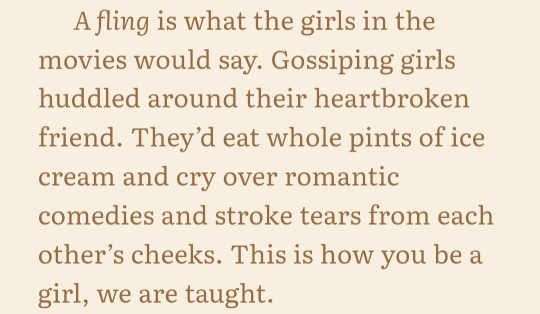
Gegenwart (ab 1968)
Lenz, Siegfried: Deutschstunde
Kertesz, Imre: Roman eines Schicksallosen
Eco, Umberto: Der Name der Rose
Jelinek, Elfriede: Die Klavierspielerin
Kundera, Milan: Die unerträgliche Leichtigkeit des Seins
Morrison, Toni: Menschenkind
Vargas Llosa, Mario: Das Fest des Ziegenbocks

0 notes
Text

Si tu as l'impression que tu ne peux plus faire un geste, que tout se ligue contre toi, au point que tu ne crois pas pouvoir tenir une minute de plus, ne baisse surtout pas les bras, car c'est à cet endroit précis, à ce moment précis que la marée redescend. [Harriett Beecher Stowe]
0 notes
Text

Every man should be born again on the first day of January. Start with a fresh page. Take up one hole more in the buckle if necessary, or let down one, according to circumstances; but on the first day of January let every man gird himself once more, with his face to the front, and take no interest in the things that were and are past.
~ Henry Ward Beecher
3 notes
·
View notes
Text
“So. You’re the little woman who wrote the book that made this big war?” - A. Lincoln
“So. You’re the little woman who wrote the book that made this big war?” – A. Lincoln


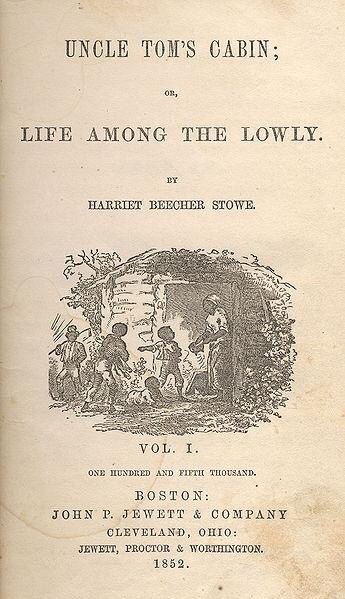
Today in History, March 20, 1852:
“So…you’re the little woman who wrote the book that made this great war!”
President Abraham Lincoln greets Harriett Beecher Stowe at the Presidential Mansion in 1862, ten years after her novel “Uncle Tom’s Cabin” was first published.
I am amazed at the foresight and courage displayed by this woman, a school teacher turned author.
By her own admission, in the…
View On WordPress
#1852#America#civil war#confederacy#England#harriett beecher stowe#History#lincoln#Lymon Beecher#march 20#mark loves history#president#this date in history#This Day in History#today in history#uncle tom&039;s cabin#union
0 notes
Photo
actually this whole thing has me thinking about what genres i like and don’t like and i’m realizing it all has to do with luxury, specifically the luxury of free choice being limited.
post-apocalyptic/dystopian? good, because everyone’s options are limited by circumstance and they almost always have to make difficult moral decisions that reveal their truest character
fantasy/medieval? absolutely; people have a pretty similar array of options as they would in a modern setting but their information is more limited which makes choices more biased. plus social distinctions are usually way more obvious in a way that limits peoples’ available actions
modern fiction? boring as hell, i live this and i can usually guess exactly what everyone’s going to do. not even worth reading, give me a brief character summary of the protagonist, deuteragonist, antagonist, and any relevant tertiary characters and i’ll just write it myself
sci-fi? Hoo Buddy. the authors are literally just making up new choices now, what the hell is going on. everything is artefact. most sci-fi reads as modern fiction but the writer was too much of a coward to do magical realism, the worst sci-fi not only eliminates choice but separates actions from the significance of choosing them, and good sci-fi is almost always apocalyptic
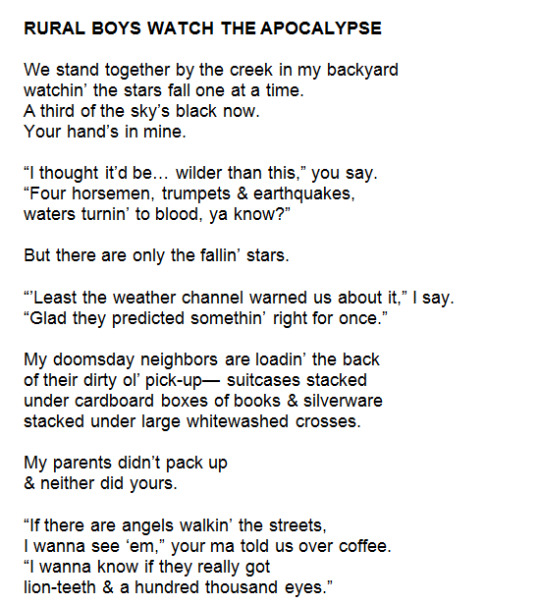
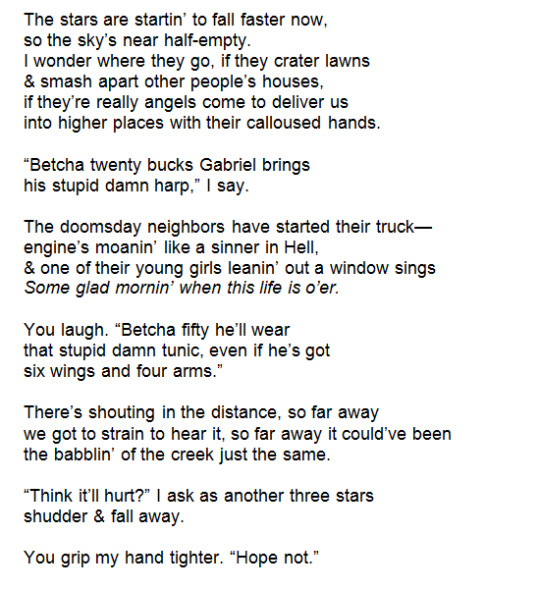
Rural Boys Watch The Apocalypse (rough draft) by Keaton St. James
#i could write pages about why i don’t like sci-fi#in real life when i tell people this they usually look shocked and betrayed#because everything about me screams HUGE NERD#and star wars conditioned the culture to associate nerds and sci-fi#i don’t have anything against space or futurism though#those can be pretty well-written#just usually not as sci-fi#anyway you can use this post to determine like three of my five foundational beliefs#but i won’t tell you what they are#in case it wasn’t abundantly obvious im much more interested in characters than themes#themes are only worthwhile inasmuch as they help reveal things about characters#otherwise you’re just writing an opinion piece#i WILL @ Uncle Tom’s Cabin for that#that book is bullshit#like yeah okay i *am* looking at it from a twenty-first century perspective where we already know slavery was awful#but godDAMN Harriett Beecher Stowe was just playing house with some dolls#even if your opinion is right that doesn’t give your writing inherent value
113K notes
·
View notes
Text
Bleeding Kansas, John Brown, Beecher's Bibles & Preacher Henry Ward Beecher
Bleeding Kansas, John Brown, Beecher’s Bibles & Preacher Henry Ward Beecher

He was one of the most popular preachers in America in the middle 1800s.
His sister was Harriett Beecher Stowe, who wrote the anti-slavery novel Uncle Tom’s Cabin in 1852.
His name was Henry Ward Beecher.
He purchased the chains that held abolitionist John Brown in prison, dragging them across the stage and stomping on them as he preached against slavery.
Read more at: Bleeding Kansas, John…
View On WordPress
0 notes
Text
Beecher Family Papers (MS 71)
Manuscripts and Archives Reading Room, Sterling Memorial Library
Link to the online finding aid
Brief overview: Correspondence, writings, speeches, diaries, clippings, printed matter, sermons, and other papers of two centuries of Beecher family members. The papers relate principally to Henry Ward Beecher (1813-1887), popular 19th century clergyman abolitionist, and orator, and members of his family. Among those represented are his father, the Reverend Lyman Beecher (1775-1863), clergyman; his brothers, Edward Beecher (1803-1895), educator and antislavery leader, and Thomas Kinnicut Beecher (1824-1900) and Charles Beecher (1815-1900), both clergyman and antislavery activists; and his sisters, Harriett Elizabeth (Beecher) Stowe (1811-1896), author of Uncle Tom’s Cabin, Catherine Esther Beecher (1800-1878), pioneer educator and writer on 'domestic economy,' and Isabella Homes (Beecher) Hooker (1822-1907), well-known suffragist.
Collection materials used in HIST 022 session:
Box 5, folder 223: Correspondence from Harriet Beecher Stowe to her sister-in-law Eunice White Beecher and brother Henry, 1837-1860.
Box 15, folder 596: Correspondence from Harriet Beecher Stowe to her brother Henry and father Lyman, 1835-1854.
0 notes
Text
Yvonne DiVita Helps Women Write Books To Inspire Other Women To Greatness
Yvonne DiVita Helps Women Write Books To Inspire Other Women To Greatness
Yvonne DiVita Helps Women Write Books To Inspire Other Women To Greatness
1. One sentence that describes what you do…
Yvonne DiVita helps smart talented women write books to inspire other women to greatness.
2. The first thing I do when I wake up…
Get coffee. Decaff. Lots of cream.
3. The quote I live by…
Women are the real architects of society. ~ Harriett Beecher Stowe
View On WordPress
0 notes
Link
“My office walls are covered with autographs of famous writers – it’s what my children call my ‘dead author wall.’ I have signatures from Mark Twain, Earnest Hemingway, Jack London, Harriett Beecher Stowe, Pearl Buck, Charles Dickens, Rudyard Kipling, Alfred, Lord Tennyson, to name a few.” -Debbie Macomber
Get More FREE Quotes Click The Image https://ift.tt/2L7KFv1
0 notes
Text
Anti Slavery And Slave Narratives
Anti Slavery And Slave Narratives
INSTRUCTIONS: Both Part 1 and Part 2 should be posted in the same response. Use attached reading for reference.
Part 1: There are quite a few subtopics to choose from within this forum question part 1; you need not address them all. Choose one or a combination of many that speak to you and run with it!
In Uncle Tom’s Cabin, Harriett Beecher Stowe uses the character Augustine St. Clare to…
View On WordPress
0 notes
Photo
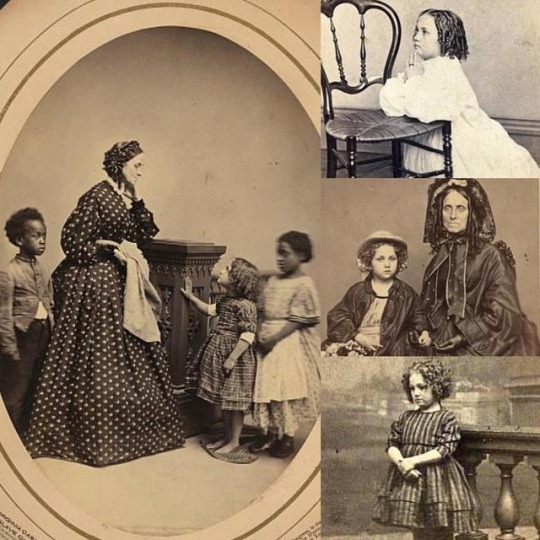
We need to figure out how to use political propaganda to our advantage again #Repost @therealblackhistorian ・・・ Fannie Virginia Casseopia Lawrence, a redeemed slave child, five years of age as she appeared when found in slavery. Slave child - She was one of the most photographed of the "slave children" who were used as propaganda tools by abolitionists during the Civil War. These children had very light complexion but because they were of a mixed black/white relationship, they were automatically considered black regardless of their skin color, features or amount of "black blood" they possessed. Many of these children were able to pass as white after the Civil War. Fannie was considered an "octoroon", or someone with 1/8th black African ancestry. Little is known about Fannie Virginia Casseopia Lawrence seen in the CDV pictures that accompany this memorial. Her birth name was "Fannie" Fletcher. Her mother was a freed slave named Mary Fletcher and her father, reportedly, was Charles Rufus Ayres, the owner of the plantation where she was born. The name Fannie Virginia Casseopia Lawrence was the name given to her when she was baptized in New York. It is thought that her middle name of Virginia was given to her as that was were she was born. And the Lawrence is obviously due to the woman who redeemed her from slavery, Miss Catherine S. Lawrence. It seems obvious that she had a white father and probably other white ancestors as she could have passed for white. The caption on the Carte de' Vista (CDV)photographs states, "Fannie Virginia Casseopia Lawrence: A redeemed Slave Child, 5 years of age. Redeemed in Virginia by Catherine S. Lawrence, baptized at Plymouth Church, by Henry Ward Beecher, May 1863." Beecher of course was one of the leading abolitionist spokesmen and noted preachers in the United States and brother to Harriett Beecher Stowe, the author of "Uncle Tom's Cabin". Stowe was the first pastor of this church and remained as such until his death in 1887. Due to his ardent abolitionist beliefs, he was a major player in slave's rights and his church figured prominently in the "Underground Railroad". The CDV portraits attached to this memorial were copyrighted https://www.instagram.com/p/BqUj9yXA2m4/?utm_source=ig_tumblr_share&igshid=1mm94exp8xgpx
0 notes
Quote
“The past, the present and the future are really one: they are today.”
~ Harriett Beecher Stowe
0 notes
Quote
I am one of the sort that lives by throwing stones at other people's glass houses, but I never mean to put up one for them to stone."
Mr. St. Clare, Uncle Tom's Cabin
2 notes
·
View notes
Quote
Never give up, for that is just the place and time that the tide will turn.
-Harriet Beecher Stowe
5 notes
·
View notes
Text
Anti Slavery And Slave Narratives
Anti Slavery And Slave Narratives
INSTRUCTIONS: Both Part 1 and Part 2 should be posted in the same response. Use attached reading for reference.
Part 1: There are quite a few subtopics to choose from within this forum question part 1; you need not address them all. Choose one or a combination of many that speak to you and run with it!
In Uncle Tom’s Cabin, Harriett Beecher Stowe uses the character Augustine St. Clare to…
View On WordPress
0 notes